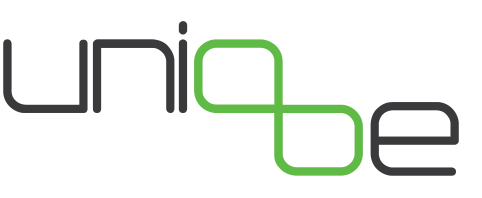Let’s face it – effective supplier communication can make or break your business when working with Hong Kong partners!
In today’s interconnected global marketplace, knowing how to talk to your Hong Kong suppliers has become a crucial differentiator for successful businesses. With Hong Kong serving as a vital gateway to Asian manufacturing, mastering these communication nuances can mean the difference between thriving partnerships and costly misunderstandings.
Recent industry reports show that businesses investing in culturally-informed communication strategies experience 42% fewer supply chain disruptions and score better pricing terms.
Whether you’re just starting out or looking to level up your existing supplier relationships, this guide will walk you through everything you need to know about optimizing your Hong Kong supplier relationships in 2025 and beyond!
Understanding Hong Kong Business Communication Culture
The foundation of successful Hong Kong supplier communication starts with understanding the unique cultural landscape that shapes business interactions.
You’ve gotta recognize that Hong Kong exists at this fascinating intersection of Eastern and Western business practices, creating a communication environment unlike anywhere else in the world!
Cultural Values That Influence Business Interactions
- The importance of “face” (mianzi) – This concept is huge in Hong Kong business culture! Causing someone to “lose face” through public criticism or embarrassment can damage relationships beyond repair. Always provide feedback privately and frame suggestions constructively.
- Relationship-building (guanxi) – Building guanxi with suppliers takes time but pays massive dividends. Hong Kong businesses prioritize establishing trust before diving into business details. Don’t rush this process!
- Respect for hierarchy – Pay attention to titles and positions within companies. Addressing the wrong person or bypassing key decision-makers can derail your communication efforts.
- Balance between Western and Chinese values – Hong Kong’s unique history has created a business environment that blends direct Western approaches with more traditional Chinese communication styles.
Communication Style Expectations
- Indirect vs. direct communication – Hong Kong professionals often use indirect language to preserve harmony. Listen for subtle cues rather than expecting straightforward answers to difficult questions.
- Non-verbal communication cues – Pay close attention to body language, facial expressions, and even silence. Sometimes what’s not said speaks volumes in Hong Kong business culture.
- Formality levels – Initial interactions typically require higher business formality than you might be used to. As relationships develop, communication may become more relaxed, but always maintain professional respect.
- Decision-making processes – Decisions often involve group consensus rather than individual authority. This can slow communication but creates more stable agreements.
Essential Digital Tools for Hong Kong Supplier Communication
The digital landscape for supplier communication has evolved dramatically, and staying updated on the preferred platforms can give you a serious edge. You’d be surprised how many businesses still rely exclusively on email when their Hong Kong partners are waiting for responses elsewhere!
Preferred Communication Platforms
- WeChat for business communication – This is absolutely essential! WeChat dominates professional communication in Hong Kong, functioning as a messaging app, payment platform, and business credential all in one. Set up a professional account with your business details.
- WhatsApp for supplier communication – While secondary to WeChat, WhatsApp remains popular for international business communication. Many Hong Kong suppliers use both platforms.
- Email protocols – Still important for formal documentation and detailed information exchange. Response expectations typically range from 24-48 hours for non-urgent matters.
- Video conferencing platforms – Zoom and Microsoft Teams are widely used, but be prepared to use alternatives like WeChat’s video call function if requested.
Translation and Language Resources
- AI translation tools – Apps like DeepL and Google Translate have improved dramatically and can help with real-time communication. Just double-check important translations!
- Professional translation services – Worth the investment for contracts, technical specifications, and other critical documents where precision matters.
- Basic Cantonese phrases – Learning even a few Cantonese business phrases demonstrates respect and helps build rapport. Simple greetings can go a long way!
- English proficiency considerations – While English is widely spoken in Hong Kong business circles, clarity is key. Avoid complex idioms, slang, and technical jargon unless you’re certain your contact understands.
Building Strong Relationships with Hong Kong Suppliers
The heart of successful Hong Kong supplier relationships lies in thoughtful, consistent relationship building. I’ve seen so many businesses focus exclusively on transactions while their competitors cultivate genuine connections that lead to preferential treatment during supply shortages!
First Contact Best Practices
- Creating professional introductions – Research the company thoroughly before reaching out. Reference specific products or services that interest you rather than sending generic inquiries.
- Initial meeting protocols – Whether virtual or in-person, punctuality is essential. Prepare a proper introduction of yourself and your company, and bring quality business cards if meeting face-to-face.
- Documentation and follow-up – Send a thank-you message within 24 hours summarizing key points discussed. This demonstrates professionalism and helps confirm mutual understanding.
- Building credibility – Be transparent about your business scale and needs. Overpromising or exaggerating can damage trust when the truth inevitably emerges.
Long-term Relationship Cultivation
- Consistency in communication patterns – Establish regular check-ins rather than contacting suppliers only when you need something. This demonstrates commitment to the relationship.
- Gift-giving customs – Small, thoughtful gifts during major holidays (particularly Chinese New Year) or business milestones are appreciated. Avoid overly lavish presents that might create discomfort.
- Social interactions – Accept invitations to meals or social events whenever possible. These informal settings often strengthen relationships more than office meetings.
- Maintaining connections during disruptions – Check in during supply chain challenges or market downturns, even when you’re not actively ordering. This long-view approach distinguishes valued partners from transactional customers.
Why Choose Uniqbe?
When navigating the complexities of Hong Kong supplier communication, having a trusted partner can make all the difference. Uniqbe stands out as a game-changer for businesses seeking reliable sourcing solutions with minimal communication headaches!
Hong Kong’s Premier Sourcing Partner
- Exceptional track record – With years of experience in the Hong Kong market, Uniqbe has built a reputation for connecting businesses with reliable manufacturing partners.
- Strong industry connections – Their established relationships with reputable manufacturers across various industries ensure competitive pricing and consistent quality.
- Dropshipping and wholesale expertise – Whether you’re an established wholesaler or just launching a dropshipping business, they understand the unique communication needs for each model.
- Commitment to reliability – Their rigorous supplier vetting process minimizes the risk of communication breakdowns and quality issues.
Tailored Communication and Support
- Cultural bridge – Uniqbe’s team provides invaluable guidance on cross-cultural supplier management, helping you avoid common pitfalls that damage relationships.
- Seamless service – From initial supplier identification through negotiation, production, and shipping, their communication systems keep you informed at every stage.
- Navigating sourcing complexities – Their expertise in managing difficult conversations around pricing, quality control, and production timelines saves you from potentially damaging these important relationships.
- Propelling business growth – By handling the intricate details of supplier communication, they free you to focus on growing your business rather than managing communication challenges.
Overcoming Common Communication Challenges
Even with careful preparation, challenges in Hong Kong supplier communication will inevitably arise. The difference between successful and struggling businesses often comes down to how these challenges are handled!
Managing Time Zone Differences
- Effective scheduling strategies – The 12+ hour time difference between North America and Hong Kong means planning ahead is essential. Schedule calls during overlapping business hours (typically early morning or evening for Western businesses).
- Response time expectations – Establish clear expectations about response times for different types of communication. Urgent matters may require different channels than routine questions.
- Asynchronous communication tools – Utilize platforms that facilitate communication across time zones. Recorded video messages can sometimes replace live calls when scheduling proves difficult.
- Time zone courtesy – Rotate who takes the inconvenient time slot for calls. Your willingness to occasionally take late-night or early-morning meetings demonstrates commitment to the relationship.
Navigating Language Barriers
- Clear communication techniques – Use simple, direct language without idioms or slang. Bullet points for key information help ensure critical details aren’t lost in translation.
- Documentation practices – Follow up verbal discussions with written summaries. This provides an opportunity to correct any misunderstandings before they cause problems.
- When to use interpreters – For complex negotiations or technical discussions, professional interpreters can be invaluable. This investment prevents costly misunderstandings.
- Confirming understanding – Develop tactful ways to verify comprehension without causing offense. “To confirm we’re on the same page…” works better than “Do you understand?” which might imply incompetence.
Negotiation and Problem Resolution Strategies
Effective negotiation and problem resolution require blending Western directness with Eastern relationship preservation. I’ve watched countless businesses damage supplier relationships by approaching these situations without cultural awareness!
Culturally-Informed Negotiation Approaches
- Patience and timing – Hong Kong business negotiations typically take longer than Western counterparts. Rushing can be perceived as aggressive or disrespectful.
- Discussing pricing and terms – Frame conversations around mutual benefit rather than demands. Direct price comparisons with competitors can cause loss of face.
- Group decision-making dynamics – Recognize that your contact may need to consult with others before finalizing agreements. Build this time into your expectations.
- Building win-win scenarios – The strongest agreements preserve dignity and benefit for both parties. Look for creative solutions that allow everyone to feel successful.
Addressing Quality and Production Issues
- Constructive feedback approaches – Present concerns as collaborative problems to solve together rather than accusations. Private conversations preserve face.
- Documentation protocols – Maintain detailed records of specifications, approvals, and previous communications. Refer to these documents rather than assigning blame.
- Relationship-preserving escalation – If initial conversations don’t resolve issues, carefully escalate following proper hierarchy. Jumping immediately to senior management can create resentment.
- Collaborative problem-solving – Approach quality issues with curiosity and a genuine desire to understand root causes. This approach typically yields better long-term solutions than demanding immediate fixes.
Conclusion
Mastering Hong Kong supplier communication requires commitment to understanding cultural nuances, leveraging the right digital tools, and prioritizing relationship building. The strategies outlined in this guide can help you transform your supplier interactions from sources of stress to valuable business assets.
Remember that patience, consistency, and genuine respect form the foundation of successful partnerships in Hong Kong’s business environment. Communication excellence isn’t just nice to have—it directly impacts your bottom line through better pricing, higher product quality, and more reliable delivery.
Start implementing these approaches today to strengthen your existing supplier relationships or build successful new ones in this vital global manufacturing hub!


 Hot Articles
Hot Articles